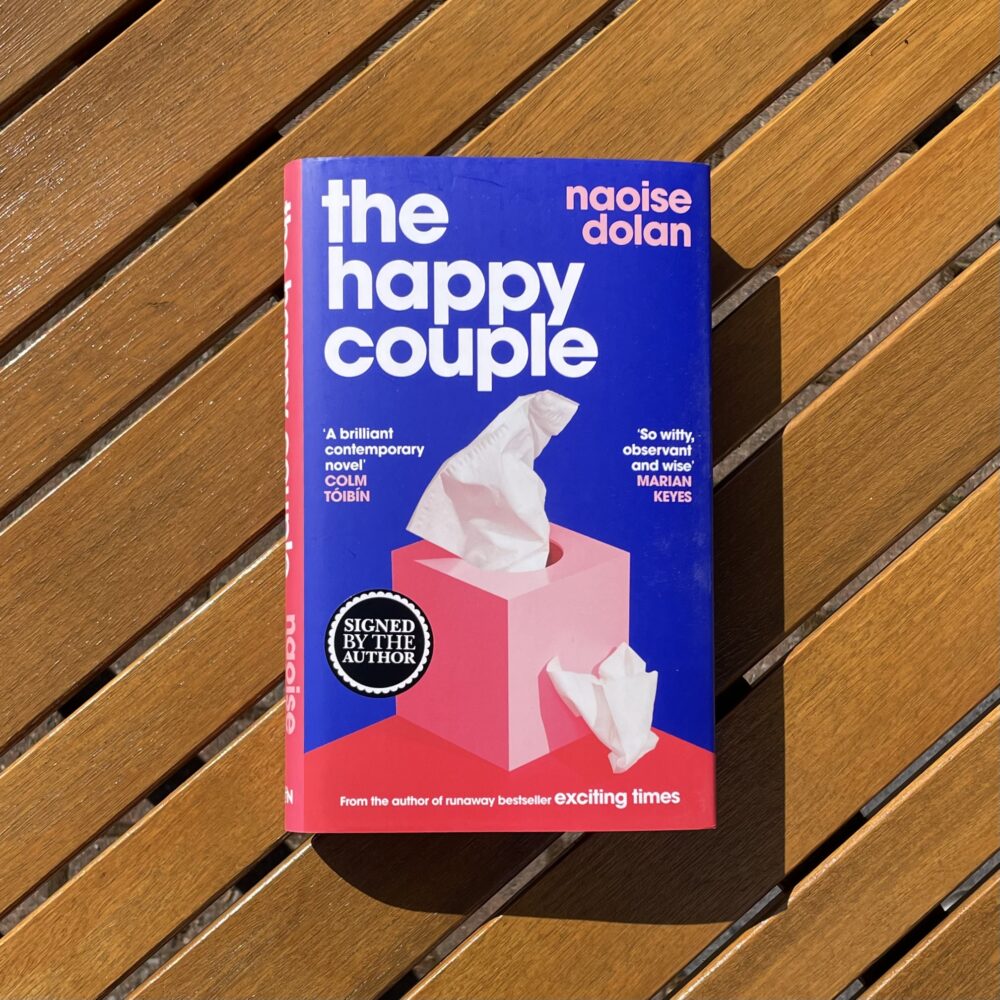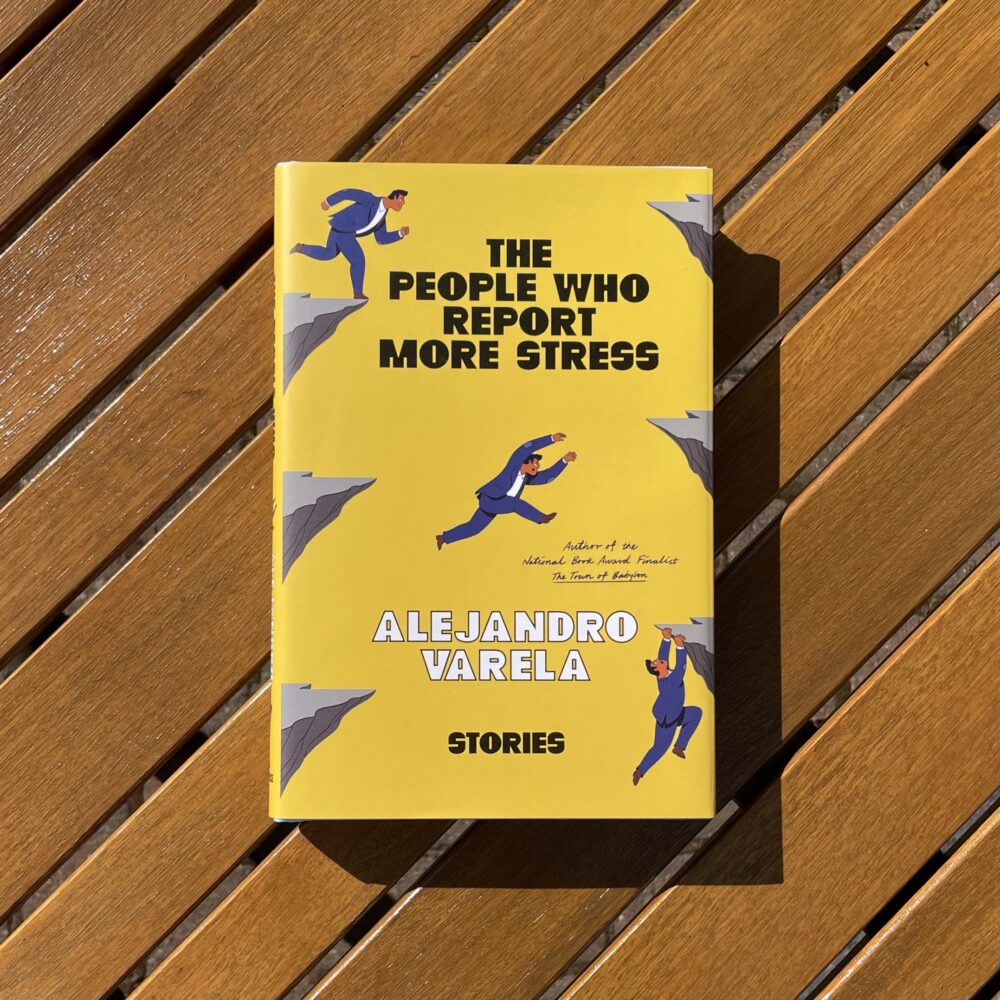A fascinating business, this reshuffle lark. Here are my initial thoughts on each of the roles, and the people now filling them.
Chancellor of the Exchequer: Alistair Darling
 No surprises here, then. He’s always struck me as a sort of inoffensive puppy, who does whatever he’s told, and does it very efficiently. There’s no chance of this ending in a Blair/Brown relationship, I don’t think Darling has the driving ambition or the nous for that. His opinion flips with whatever his bosses tell him: From devolution, to independence for the Bank of England, he just thinks what he’s told to think. And I’m slightly scared of his eyebrows.
No surprises here, then. He’s always struck me as a sort of inoffensive puppy, who does whatever he’s told, and does it very efficiently. There’s no chance of this ending in a Blair/Brown relationship, I don’t think Darling has the driving ambition or the nous for that. His opinion flips with whatever his bosses tell him: From devolution, to independence for the Bank of England, he just thinks what he’s told to think. And I’m slightly scared of his eyebrows.
Lord Chancellor and Secretary of State for Justice: Jack Straw
I like Jack Straw. He’s a man of some honour, and he says what he really thinks. I don’t always agree with what he thinks, but I reckon he’s got his head screwed on, and will work well Justice. Good for him.
 Parliamentary Secretary to the Treasury and Chief Whip: Geoff Hoon
Parliamentary Secretary to the Treasury and Chief Whip: Geoff Hoon
Not a bad move at all. Geoff Hoon’s slightly ridiculous and bumbling manner makes him bad at some jobs: Secretary of State for Defence being one of them, where I felt he was pretty terrible. But I reckon he’s got a good political sense about him, and will probably do well as Chief Whip.
Leader of the House of Commons, Minister for Women, and Labour Party Chair: Harriet Harman
Not the person I would’ve put in the position of Leader of the House of Commons if I was hoping to push ahead with the excellent work on Parliamentary reform given a real boost in the last few months by Jack Straw. Note also, in this age of apparent equality, that there’s still no equivalent Minister for Men. As for Harriet Harman herself, I really have no opinion.
Secretary of State for Culture, Media and Sport: James Purnell
 The Guardian calls him ‘good-looking’. I don’t see it. He looks more like one of those slightly suspicious characters in 24 who turns out to be head of the terrorists plotting to detonate a nuclear weapon on US soil. Again. Just like they were plotting last season. But more pertinently, it seems utterly bizarre that the person in charge of culture and sport apparently isn’t in charge of the biggest thing in British culture and sport for decades: The Olympics. I’m not sure whether that’s an example astounding idiocy or great brilliance. On the one hand, it could lead to a giant scrap because of overlapping portfolios, but on the other, it could mean that culture outside of the Olympics can be concentrated on and cultivated by one individual, which might help to stop the diversion of all funding and support away from valid projects to be pumped into the Olympics.
The Guardian calls him ‘good-looking’. I don’t see it. He looks more like one of those slightly suspicious characters in 24 who turns out to be head of the terrorists plotting to detonate a nuclear weapon on US soil. Again. Just like they were plotting last season. But more pertinently, it seems utterly bizarre that the person in charge of culture and sport apparently isn’t in charge of the biggest thing in British culture and sport for decades: The Olympics. I’m not sure whether that’s an example astounding idiocy or great brilliance. On the one hand, it could lead to a giant scrap because of overlapping portfolios, but on the other, it could mean that culture outside of the Olympics can be concentrated on and cultivated by one individual, which might help to stop the diversion of all funding and support away from valid projects to be pumped into the Olympics.
 Secretary of State for Defence, and Secretary of State for Scotland: Des Browne
Secretary of State for Defence, and Secretary of State for Scotland: Des Browne
No question of who he looks like: His Westminster nickname is Swiss Toni. He’s been a reasonably good defence secretary up to now, apart from the little upset over the Iranian Hostages being allowed to sell their stories. A good idea to keep him in his post.
Secretary of State for International Development: Douglas Alexander
A pretty inoffensive Scot, in a pretty inoffensive post. Meh.
Minister for the Cabinet Office and Treasury of the Duchy of Lancaster: Ed Miliband
 It’s the Miliblogger’s brother, who looks remarkably like Ernie. And you can kind of convince yourself that Miliblogger himself looks a bit like Bert, if you screw your eyes up tight. He seems a less ridiculous politician than his brother, and seems to understand the value of keeping quiet sometimes.
It’s the Miliblogger’s brother, who looks remarkably like Ernie. And you can kind of convince yourself that Miliblogger himself looks a bit like Bert, if you screw your eyes up tight. He seems a less ridiculous politician than his brother, and seems to understand the value of keeping quiet sometimes.
Secretary of State for Children, Schools and Families: Ed Balls
A newly created job, covering one half of the old Department for Education and Skills, though quite why Brown has thrown ‘families’ into the brief is beyond me. Ed Balls seems to have quite a shrewd political mind, but I’m not sure he’ll be all that great in this post. But certainly an interesting one to watch.
Secretary of State for Innovation, Universities and Skills: John Denham
A minister for ‘innovation’? What a bizarre title. But this is the other half of the DfES. Not quite sure what to think of Mr Denham, to be honest.
Secretary of State for Environment, Food and Rural Affairs: Hilary Benn
 It’s always struck me as odd that there’s a minister for ‘rural affairs’, as if it’s some niche topic, when, in reality, more people in our country live in ‘rural’ areas than cities. But perhaps that’s not clear to Londoners. Hilary Benn seems a very committed politician, who’s honest and will say what he thinks. Despite his relatively low profile, I rather like Mr Benn – and he’s certainly better in this job than the Miliblogger.
It’s always struck me as odd that there’s a minister for ‘rural affairs’, as if it’s some niche topic, when, in reality, more people in our country live in ‘rural’ areas than cities. But perhaps that’s not clear to Londoners. Hilary Benn seems a very committed politician, who’s honest and will say what he thinks. Despite his relatively low profile, I rather like Mr Benn – and he’s certainly better in this job than the Miliblogger.
Secretary of State for Health: Alan Johnson
Ding dong, the witch is dead! Or, at least, Mad Pat’s gone. For all her wrongs, though, I wouldn’t wish her to be leaving because of her dying mother, and I do feel sympathy for her. Brown has declared the NHS to be his priority (as Cameron did some months ago), so it will be interesting to see where this goes. Mr Johnson could be a great success, or a terrible failure. He’s a bit of a slime-ball, and was a big advocate of tuition fees. But a little bit of slime might just help him to appear amenable to the staff of the NHS, and if he’s slimy in the right way, he could make this work. But if he argues with Brown, as seems likely, and messes stuff up, he could be the sleazeball that loses Brown the next election. It’s a big risk, but it might just pay off.
Secretary of State for Foreign and Commonwealth Affairs: David Miliband
 Oh, dear god, why? We’ve gone from the mildly bizarre caravanning foreign secretary of Margaret Beckett, to David ‘connect with the people’ Miliblogger – who only wants to connect with those who agree with him. His much maligned (and hugely expensive) blog, combined with his wiki that had to be taken down, just make him look utterly ridiculous. Jack Straw brought gravitas and diplomacy to this role. Miliblogger simply ignores people he disagrees with – not exactly being diplomatic. Why people think he’s a future Labour leader, I simply do not understand.
Oh, dear god, why? We’ve gone from the mildly bizarre caravanning foreign secretary of Margaret Beckett, to David ‘connect with the people’ Miliblogger – who only wants to connect with those who agree with him. His much maligned (and hugely expensive) blog, combined with his wiki that had to be taken down, just make him look utterly ridiculous. Jack Straw brought gravitas and diplomacy to this role. Miliblogger simply ignores people he disagrees with – not exactly being diplomatic. Why people think he’s a future Labour leader, I simply do not understand.
Secretary of State for the Home Department: Jacqui Smith
Another slightly unknown quantity. It’s rumoured that no-one wanted this job, and it’s probably understandable. Of late, it’s become something of a poisoned chalice. Will she be the one to turn it round, and flourish in this pressured role? I don’t see it happening.
Secretary for Business, Enterprise and Regulatory Reform: John Hutton
So, out go the scary eyebrows, and in comes John Hutton. I’m not a fan of his, but I’ve no concrete idea why. Perhaps it’s the association with the snake that is Alan Milburn, perhaps it’s that he shares a name with Lord Hutton, I don’t know. But I don’t like him, and I don’t trust him.
Leader of the House of Lords and Lord President of the Council: Lady Ashton
 Lady Ashton has got a tough act to follow in Baroness Amos, but she’s got form to do it. Once Stonewall’s politician of the year, she’s also worked strenuously against forced marriage. She had strong beliefs, and sticks to them. I think she’ll do well.
Lady Ashton has got a tough act to follow in Baroness Amos, but she’s got form to do it. Once Stonewall’s politician of the year, she’s also worked strenuously against forced marriage. She had strong beliefs, and sticks to them. I think she’ll do well.
Secretary of State for Communities and Local Government: Hazel Blears
The perma-smile moves to communities and local government. It’s good that Hazel has got control of local government, for that is where I feel she rather belongs – and the sooner this poor naive woman is out of the national picture, the better for her and us.
Secretary of State for Nothern Ireland: Shaun Woodward
The butlered multi-millionaire ex-Conservative (and ex-editor of Esther Rantzen’s That’s Life) seems such an affably impotent guy that he might just be perfect for this role right now. With so much progress in Northern Ireland, he’s not someone who’s going to rock the boat too much. A good pick.
Secretary of State for Transport: Ruth Kelly
 I think Ruth Kelly might go further in government than people think. She’s a very controversial figure, but, like Mr Blair, nothing sticks. The number of scandals she’s been involved in, from Home Information Packs, to turning down a job and the Department of Health because she’s against abortion, and at the Department of International Development because it promotes the use of condoms, to sending her son to a private school while at the Department for Education and Skills. She’s a remarkably intelligent woman, and will be on the scene for a long time to come. Whether or not that’s a good thing, I’m distinctly unsure.
I think Ruth Kelly might go further in government than people think. She’s a very controversial figure, but, like Mr Blair, nothing sticks. The number of scandals she’s been involved in, from Home Information Packs, to turning down a job and the Department of Health because she’s against abortion, and at the Department of International Development because it promotes the use of condoms, to sending her son to a private school while at the Department for Education and Skills. She’s a remarkably intelligent woman, and will be on the scene for a long time to come. Whether or not that’s a good thing, I’m distinctly unsure.
Chief Secretary to the Treasury: Andy Burnham
One of those posts no-one really cares all that much about. Burnham’s best bet is to keep it that way.
Secretary of State for Work and Pensions: Peter Hain
Peter Hain used to talk a lot of sense, but appears to have been losing his marbles somewhat of late. He’s too outspoken for his own good, and I don’t think this job will fit him particularly well.
Minister for Housing: Yvette Cooper
Ed Balls’s other half. I’m not sure what I make of her, in all honesty.
Minister for Children and Youth Justice: Beverley Hughes
An impressive number of ‘e’s in that name. I haven’t been concentrating enough to understand how her job differs all that much from Ed Balls’s. Let’s hope she has.
 Minister for Africa, Asia and the UN: Lord Malloch Brown
Minister for Africa, Asia and the UN: Lord Malloch Brown
A fascinating appointment from outside of Westminster. The former UN Deputy Secretary General, it will be interesting to see what he gets up to. Perhaps shows that Gordon is taking Africa seriously – or at least trying to appear that way.
Minister for the Olympics and London: Tessa Jowell
As already mentioned, a role which appears to overlap considerably with Purnell’s. But her unashamed buddyness with Ken Livingstone should work well.
Attorney General: Lady Scotland
Can only hope that she does a better job than Lord Goldsmith… and it looks like she might be. Certainly seems to be more of a high-flyer.
Deputy PM: No-one
The fact that no-one needs to take over from John Prescott rather confirms what we already knew: He hasn’t been doing anything of use for months.
So there you go… that’s pretty much what I think of the new gang, right now. It’ll probably change in about five minutes’ time.
I’m particularly glad to see the backs of John ‘attack dog’ Reid and Mad Pat, but I’m sure this new bunch will have some equally annoying characters. It kinda reminds me of Big Brother – except we let this bunch of misfits run the country, and there’s only an eviction every four years, and even then it’s David Dimbleby at the helm rather than Davina screaming at us. Though there’s an idea for Channel 4 next election night…
And if reports are to be believed, the next election night might be earlier than we thought – next year, perhaps. If that happens, I wouldn’t be surprised to see Brown win. Interesting times ahead.










 No surprises here, then. He’s always struck me as a sort of inoffensive puppy, who does whatever he’s told, and does it very efficiently. There’s no chance of this ending in a Blair/Brown relationship, I don’t think Darling has the driving ambition or the nous for that. His opinion flips with whatever his bosses tell him: From devolution, to independence for the Bank of England, he just thinks what he’s told to think. And I’m slightly scared of his eyebrows.
No surprises here, then. He’s always struck me as a sort of inoffensive puppy, who does whatever he’s told, and does it very efficiently. There’s no chance of this ending in a Blair/Brown relationship, I don’t think Darling has the driving ambition or the nous for that. His opinion flips with whatever his bosses tell him: From devolution, to independence for the Bank of England, he just thinks what he’s told to think. And I’m slightly scared of his eyebrows. Parliamentary Secretary to the Treasury and Chief Whip: Geoff Hoon
Parliamentary Secretary to the Treasury and Chief Whip: Geoff Hoon The Guardian calls him ‘good-looking’. I don’t see it. He looks more like one of those slightly suspicious characters in 24 who turns out to be head of the terrorists plotting to detonate a nuclear weapon on US soil. Again. Just like they were plotting last season. But more pertinently, it seems utterly bizarre that the person in charge of culture and sport apparently isn’t in charge of the biggest thing in British culture and sport for decades: The Olympics. I’m not sure whether that’s an example astounding idiocy or great brilliance. On the one hand, it could lead to a giant scrap because of overlapping portfolios, but on the other, it could mean that culture outside of the Olympics can be concentrated on and cultivated by one individual, which might help to stop the diversion of all funding and support away from valid projects to be pumped into the Olympics.
The Guardian calls him ‘good-looking’. I don’t see it. He looks more like one of those slightly suspicious characters in 24 who turns out to be head of the terrorists plotting to detonate a nuclear weapon on US soil. Again. Just like they were plotting last season. But more pertinently, it seems utterly bizarre that the person in charge of culture and sport apparently isn’t in charge of the biggest thing in British culture and sport for decades: The Olympics. I’m not sure whether that’s an example astounding idiocy or great brilliance. On the one hand, it could lead to a giant scrap because of overlapping portfolios, but on the other, it could mean that culture outside of the Olympics can be concentrated on and cultivated by one individual, which might help to stop the diversion of all funding and support away from valid projects to be pumped into the Olympics. Secretary of State for Defence, and Secretary of State for Scotland: Des Browne
Secretary of State for Defence, and Secretary of State for Scotland: Des Browne It’s the Miliblogger’s brother, who looks remarkably like Ernie. And you can kind of convince yourself that Miliblogger himself looks a bit like Bert, if you screw your eyes up tight. He seems a less ridiculous politician than his brother, and seems to understand the value of keeping quiet sometimes.
It’s the Miliblogger’s brother, who looks remarkably like Ernie. And you can kind of convince yourself that Miliblogger himself looks a bit like Bert, if you screw your eyes up tight. He seems a less ridiculous politician than his brother, and seems to understand the value of keeping quiet sometimes. It’s always struck me as odd that there’s a minister for ‘rural affairs’, as if it’s some niche topic, when, in reality, more people in our country live in ‘rural’ areas than cities. But perhaps that’s not clear to Londoners. Hilary Benn seems a very committed politician, who’s honest and will say what he thinks. Despite his relatively low profile, I rather like Mr Benn – and he’s certainly better in this job than the Miliblogger.
It’s always struck me as odd that there’s a minister for ‘rural affairs’, as if it’s some niche topic, when, in reality, more people in our country live in ‘rural’ areas than cities. But perhaps that’s not clear to Londoners. Hilary Benn seems a very committed politician, who’s honest and will say what he thinks. Despite his relatively low profile, I rather like Mr Benn – and he’s certainly better in this job than the Miliblogger. Oh, dear god, why? We’ve gone from the mildly bizarre caravanning foreign secretary of Margaret Beckett, to David ‘connect with the people’ Miliblogger – who only wants to connect with those who agree with him. His much maligned (and hugely expensive) blog, combined with his wiki that had to be taken down, just make him look utterly ridiculous. Jack Straw brought gravitas and diplomacy to this role. Miliblogger simply ignores people he disagrees with – not exactly being diplomatic. Why people think he’s a future Labour leader, I simply do not understand.
Oh, dear god, why? We’ve gone from the mildly bizarre caravanning foreign secretary of Margaret Beckett, to David ‘connect with the people’ Miliblogger – who only wants to connect with those who agree with him. His much maligned (and hugely expensive) blog, combined with his wiki that had to be taken down, just make him look utterly ridiculous. Jack Straw brought gravitas and diplomacy to this role. Miliblogger simply ignores people he disagrees with – not exactly being diplomatic. Why people think he’s a future Labour leader, I simply do not understand. Lady Ashton has got a tough act to follow in Baroness Amos, but she’s got form to do it. Once Stonewall’s politician of the year, she’s also worked strenuously against forced marriage. She had strong beliefs, and sticks to them. I think she’ll do well.
Lady Ashton has got a tough act to follow in Baroness Amos, but she’s got form to do it. Once Stonewall’s politician of the year, she’s also worked strenuously against forced marriage. She had strong beliefs, and sticks to them. I think she’ll do well. I think Ruth Kelly might go further in government than people think. She’s a very controversial figure, but, like Mr Blair, nothing sticks. The number of scandals she’s been involved in, from Home Information Packs, to turning down a job and the Department of Health because she’s against abortion, and at the Department of International Development because it promotes the use of condoms, to sending her son to a private school while at the Department for Education and Skills. She’s a remarkably intelligent woman, and will be on the scene for a long time to come. Whether or not that’s a good thing, I’m distinctly unsure.
I think Ruth Kelly might go further in government than people think. She’s a very controversial figure, but, like Mr Blair, nothing sticks. The number of scandals she’s been involved in, from Home Information Packs, to turning down a job and the Department of Health because she’s against abortion, and at the Department of International Development because it promotes the use of condoms, to sending her son to a private school while at the Department for Education and Skills. She’s a remarkably intelligent woman, and will be on the scene for a long time to come. Whether or not that’s a good thing, I’m distinctly unsure. Minister for Africa, Asia and the UN: Lord Malloch Brown
Minister for Africa, Asia and the UN: Lord Malloch Brown